The Future of Peace and War
With cumulative, transformative changes we are at a pivot point in history. A frequently used acronym to characterize our new era is VUCA: Volatility, Uncertainty, Complexity, and Ambiguity. In this new era what does the future of war look like? and as importantly, what are emerging counter-trends and vectors of peace?
The Context
We cannot predict the future, but we can anticipate it. This thinking lies at the heart of The Future of Peace and War project. In today’s context, factors that can be identified as potentially transformative and impacting sustainable peace in the future include:
- a shift towards a less predictable multipolar world and the decoupling of global interdependence;
- the unprecedented rapidity of technological change with an impact on the distribution of power, on society and politics as well as on the conduct of war;
- the tipping point we are rapidly reaching in the destruction of our biosphere;
- the fragmentation of the body politic and the loss of trust in democratic institutions;
- growing inequalities within and between nations;
- the spread of transnational organized crime.
The changes brought about by these, and other factors, lead to increased volatility but may also produce new opportunities for peace making. However, until now, much work has been devoted to examining, often in isolation, emerging vectors of conflict, such as climate change or great powers rivalry. Less studied are the interactions between the different vectors that may carry us in one or the other direction along the peace and war continuum. Equally under-researched are the opportunities and trends likely to foster peace.
New approaches to anticipation and foresight are therefore needed to understand the major current lines of thought within the field and identify the fundamental questions they raise about our future. So far, we lack the tools needed to anticipate the future of peace and war in a credible way, building upon the latest insights from science. The Future of Peace and War project aims at narrowing this gap.
The Partners
The Geneva Centre for Security Policy (GCSP), the Geneva Science and Diplomacy Anticipator (GESDA), and the Kent Global Leadership Programme on Conflict Resolution at the School of International and Political Affairs (SIPA) at Columbia University have joined forces to identify new approaches to anticipate the future of peace and war.
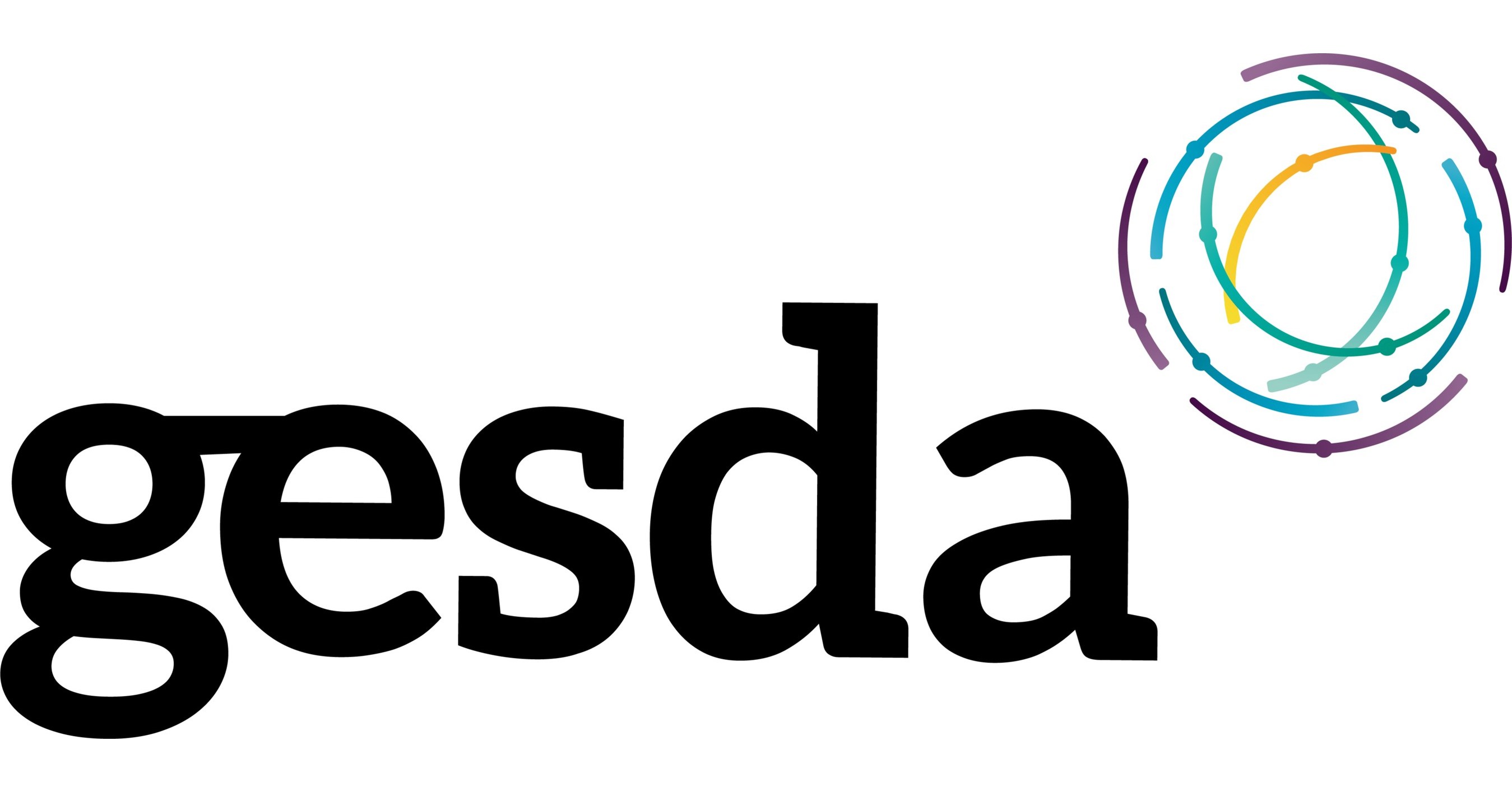 | 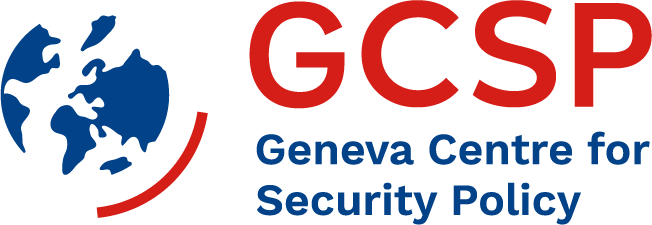 |
The Future of Peace and War project develops, tests, and applies methodological frameworks and tools to subsequently identify the right trends and counter-trends shaping the futures of peace and war. The project is interdisciplinary and cross-regional. It brings together historians, political and social scientists, economists, technology experts and those that span the divide between practice and academia.
The Aim
The overall aim is to provide decision-makers and policy-makers with a picture of probable futures to improve understanding of the environment in which they make decisions and the possible consequences of those decisions over a long period. Through interdisciplinary expertise, research, workshops and international conferences, this work shall lead to the establishment of a permanent forum advising high-level policy-makers on the nature of future conflicts and the ways to address them. The longer-term objective is to issue a regularly revised publication containing a comprehensive, cross-cutting assessment of risks over 10 to 25 years, anticipating both threats to security and the means to mitigate, contain and resolve them.
The project distinguishes itself from other related initiatives:
- by bringing together three centers of expertise in this field;
- by focusing both on drivers of war as of peace;
- by anticipating developments over the mid and longer terms;
- by ensuring the diversity of stakeholders in terms of gender and geographical representation;
- by its integrated focus on the relationship between seemingly unrelated causes of conflict;
- by its orientation towards what can be done to enhance prevention, containment, or resolution.
The Process
The three organisations have first collaborated on an anticipatory mapping, described in the Science Breakthrough Radar, which provides an overview of some of the scientific emerging topics which require significant anticipation and attention from world leaders.
While these contributions provide a first glimpse of possible futures, two workshops were organized subsequently in Geneva and New York to offer a unique space of convergence for experts to discuss innovative anticipation methodologies.
A first workshop held at the GCSP in early April 2023 discussed methodologies for anticipation and some of the limitations to foresight. During this workshop, experts agreed on a two-axis anticipation framework to capture the main interacting vectors shaping the future of peace and war.
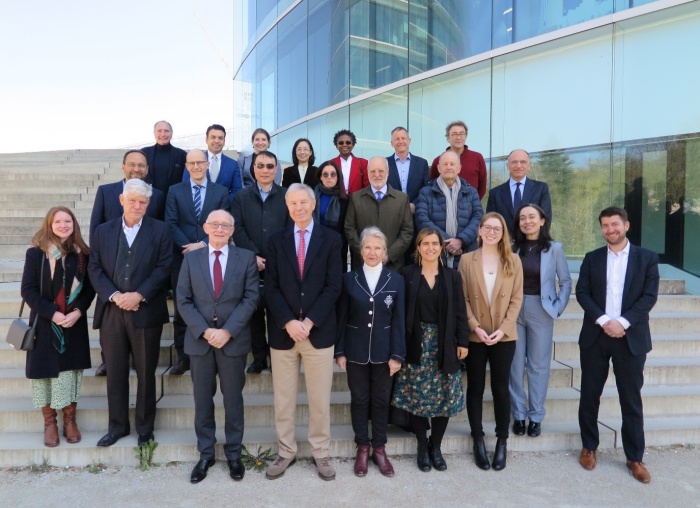
During a second workshop in New York held at the end of June 2023, the global experts applied the methodology which emerged from the first workshop and discussed trends, counter-trends, and potential critical ruptures. The specific focus was on shifting patterns in the distribution of power and the implications of new technological breakthroughs on peace and war. The second workshop laid the basis for the formulation of four narratives of probable futures resulting from the two-axis approach, with the vertical axis representing the continuum between war and peace, and the secondary axis focusing on the impact of science and technology on societies, from enhancing to disrupting the distribution of power.
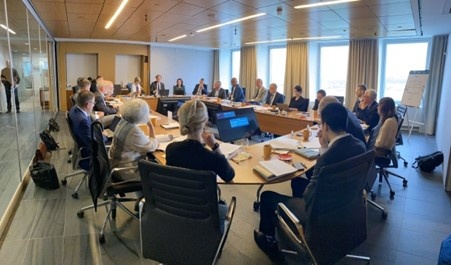
The outcomes of these two workshops were presented during the GESDA’s high-level Summit on 11-13 October in Geneva. During a plenary session, the GCSP and Columbia University presented the insights derived from the workshops to several hundreds of global experts from science, diplomacy, business and civil society. The importance of focusing on counter-trends and thinking in terms of multiple and contrasting futures was emphasized. These presentations set the stage for a panel discussion on how new methodologies for anticipation in peace and security can be developed. An expert workshop, leaded by the GCSP and GESDA, then united an interdisciplinary group of thinkers to further discuss how technology can be a driver of peace and war.
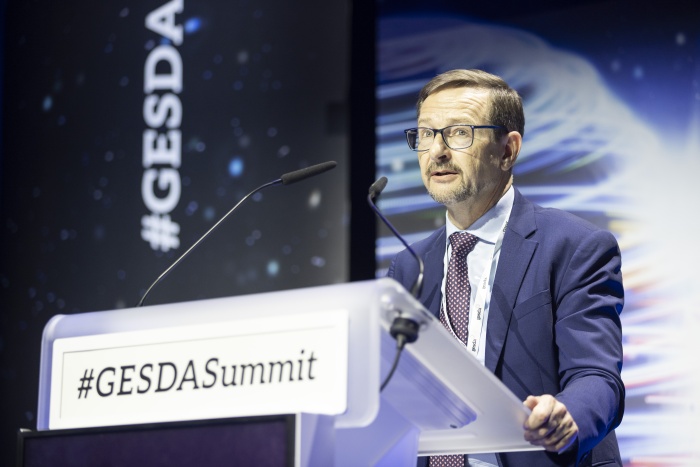
Experts
- Nayef AL-RODHAN, Director of Geopolitics and Global Futures Department, Geneva Centre for Security Policy
- Eugene CHEN, Director of the Prevention and Peacebuilding Program, NYU Center on International Cooperation
- Jakkie CILLIERS, Head of the African Futures and Innovations Programme, Institute for Security Studies Africa
- Stéphane DECOUTÈRE, Secretary General of the Board, Geneva Science and Diplomacy Anticipator
- Alexandre FASEL, Ambassador, Special Representative for Science Diplomacy in Geneva, Swiss Confederation
- Sophie GILBERT, Program Lead, Geneva Science and Diplomacy Anticipator
- Richard GOWAN, UN Director, International Crisis Group
- Catherine-Lune GRAYSON, Head of Policy, International Committee of the Red Cross
- Thomas GREMINGER, Ambassador and Director, Geneva Centre for Security Policy
- Taylor GROSSMAN, Senior Researcher, ETH Zürich
- Jean-Marie GUÉHENNO, Arnold A. Saltzman Professor of Practice in International and Public Affairs
- Director of SIPA’s Kent Global Leadership Program on Conflict Resolution; Director of International Conflict Resolution Specialization, Columbia University
- Chris HARLAND, Deputy Permanent Observer and Legal Adviser to the United Nations, International Committee of the Red Cross
- David HARLAND, Executive Director, Centre for Humanitarian Dialogue
- Sirkka HEINONEN, Professor, Finland Futures Research Centre, University of Turku
- Fabrizio HOCHSCHILD, Special Advisor, Geneva Centre for Security Policy
- Lise HOWARD, Professor of Government and Foreign Service, Georgetown University
- Camino KAVANAGH, Non-Resident Scholar, Carnegie Endowment for International Peace
- Walter KEMP, Strategic Advisor, Geneva Centre for Security Policy
- Randolph KENT, Visiting Professor, King’s College London
- Radha KUMAR, former Director General, Dehli Policy Group
- Enrico LETTA, former Prime Minister of Italy; President, Jacques Delors Institute
- Zhifei LI, Professor, Chinese Academy of Social Sciences
- Martha MAYA, Director Latin American Programme, Institute for Integrated Transitions
- Erik MELANDER, Professor Department of Peace and Conflict Research, University of Uppsala
- Michael MØLLER, former Under Secretary-General of the UN, Director-General of the UN Office in Geneva from 2013 to 2019; Member of the Board of Directors, Geneva Science and Diplomacy Anticipator
- Martin MÜLLER, Executive Director Science Anticipation, Geneva Science and Diplomacy Anticipator
- Maricela MUÑOZ, Director Strategic Partnerships, Geneva Science and Diplomacy Anticipator
- Raphael Chijioke NJOKU, Professor of African History and Global Studies, Idaho State University
- Funmi OLONISAKIN, Professor of Security, Leadership & Development, Vice-President, King's College London
- Jean-Marc RICKLI, Head of Global and Emerging Risks, Geneva Centre for Security Policy
- Marie-Laure SALLES, Director, Graduate Institute of International and Development Studies
- Christian SCHLAEPFER, First Secretary, Permanent Mission of Switzerland to the UN in New York
- Dingli SHEN, Professor, Fudan University
- Maria SNEGOVAYA, Senior Fellow, Europe, Russia, and Eurasia Program, Center for Strategic and International Studies
- Jake SOTIRIADIS, Director, The Center for Futures Intelligence, the National Intelligence University
- Bruno TERTRAIS, Deputy Director, Foundation for Strategic Research
- Tobias VESTNER, Director of Research and Policy Advice & Head of Security and Law, Geneva Centre for Security Policy
- Terese WHITFIELD, Senior Advisor, Centre for Humanitarian Dialogue
- Bening Ahmed WIISICHONG, Secretary General, Pan-African Youth Union
- Alexis WICHOWSKI, Adjunct Professor of Technology, Media and Communications, Columbia University
- Pak Nung WONG, Senior Lecturer, University of Bath
Publications
- The Future of Peace and War: The Geopolitical Lens by Thomas Greminger, Jean-Marie Guéhenno and Michael Møller
- The Future of Peace and War: Warfare at the Technological Edge by Thomas Greminger, Tobias Vestner, Nayef Al-Rodhan and Jean-Marc Rickli
- The Future of Peace and War: The vital role of debate and difference by Jean-Marie Guéhenno.
- Speech on the Results of the Project on the Future of Peace and War during the GESDA Summit 2023, by Thomas Greminger
- The Divide between War and Peace by Tobias Vestner
- Neurotechnologies: the New Frontier for International Governance by Ricardo Chavarriaga, Jean-Marc Rickli and Federico Mantellassi
- Preventing the Increased/Uncontrolled Militarisation of Outer Space by Nayef Al-Rodhan
- From Strategy to Orders: Preparing and Conducting Military Operations with Artificial Intelligence by Tobias Vestner
- Human-Machine Teaming in Artificial Intelligence-Driven Air Power by Jean-Marc Rickli and Federico Mantellassi
- Arctic Science Diplomacy : With or Without Russia? , by Valery Konyshev
